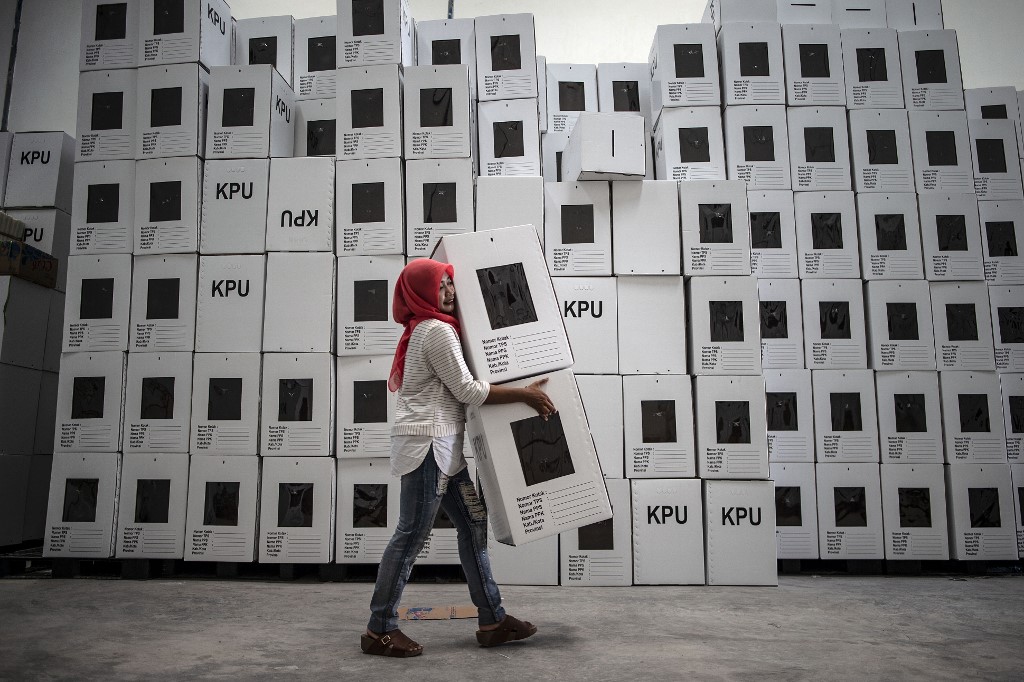Just a few weeks ago, Indonesian went to the polls to have a say in the affairs of the most populous nation in Southeast Asia. Not just a few of them voted either – with about 50.2 million ballots cast by women in the December local elections, female voters slightly eked out their male counterparts for participation.
Indonesia is a country that, on paper, encourages female participation in politics, but in practice, women face many obstacles due in large part to patriarchal norms in the culture. Though the state has ambitious goals to ensure female representation in government, these goals are likely to fail without meaningful follow-up. Although Indonesia stipulates women should make up at least 30% of the parliament, in reality this figure sits at only 20% and barely moved for a decade, leaving the archipelago’s political world still highly dominated by men.
According to the Global Gender Gap Report 2020 by the World Economic Forum, Indonesia ranked 82nd in the world in terms of women’s political empowerment, lagging behind young neighbouring country Timor-Leste, which ranked 51st worldwide. Political empowerment – the ratio of men and women in political decision making – is reflected through the number of seats held by women in parliamentary positions.
Against this backdrop, the Indonesian government should be aware that focusing only to increase the quota of women in local and national parliaments is not effective in reaching more women from lower economic backgrounds, as shown by the trend in figure 1 below. This limitation is caused by lacking access to information and opportunity.
Figure 1 : Women Political Empowerment in Indonesia by Income
There are three main reasons why it is difficult to close the female political participation gap in Indonesia.
First, there is a strong patriarchal legacy nationwide which is difficult to deal with due to engrained cultural and religious influence. In addition, the majority of society still believes women should manage the household, an attitude that has only grown during the Covid-19 pandemic by some accounts. Limited facilities for women at work to take care of their children, such as inflexible working hours and a lack of free childcare facilities, also restrict women’s economic, and thus political, participation.
Compared to men, women have less leisure time to participate in civic engagement and political membership, activities which could improve their political skills and professional networking. Some of Indonesia’s hundreds of cultures and ethnicities even believe that a wife is not allowed to leave the house without the permission of her husband, or oppose the view that women may work together with male colleagues in the same office.
Second, the issue is not just one of gender, but economic status too. Girls from disadvantaged economic backgrounds, those aged 16 years old and above, do not have inspiring role models, nor knowledge on the importance of women in politics. Compared to girls the same age from wealthier backgrounds, there is a huge gap of access and information to engage in politics early on. According to the World Bank, women’s political participation is also skewed towards high income groups in urban areas, in which opportunities to low-income women are limited.
Third, the 5th Minister of Female Empowerment – Khofifah Indar Parawansa – argued that legislative rights to equal political participation at local level are poorly implemented and ineffective. This weak implementation is because there is no clear guideline to monitor women’s participation in politics, especially among low-income women in rural areas.
As mentioned, Indonesian lawmakers have already approved a bill intended to guarantee a 30% quota for women-held seats in parliament. But that quota seems to be wishful thinking at this point, as women still occupy only a small fraction of seats in the national and subnational parliaments.
Without a designated oversight and enforcement body to track female political participation and address the institutional and societal injustices that prioritise the nomination of male parliamentarians, this goal for representation will continue to go unmet.

Closing underrepresentation in the political sector will bring socio-political justice for Indonesian women as a whole as female politicians tend to make female-friendly decisions. Daniel Stockemer, who analysed political representation in EU countries, found that Nordic countries, which have the highest share of women representation in legislature in Europe, have more policies on violence against women and reproductive rights.
UN Women Executive Director Michelle Bachelet stated: “We know that countries with more women in parliament tend to have more equitable laws and social programmes and budgets that benefit women and children and families”.
To promote more women participation in politics, the Indonesian government needs to focus on three sectors.
Scholars have long documented the ways in which engaging Indonesian religious and indigenous male leaders is a significant step to increasing women’s political participation at the local level
First, educating female and male youth since the age of 16 about the importance of women participation in politics. Research shows that the younger female students are exposed to a curriculum about gender equality in political participation, the more confidence they have to take part as a leader when there are opportunities to do so, such as on student councils. Providing this civic education to male students from at least junior high school is also essential to changing their behaviour, ensuring they are more supportive to female leadership as they get used to discussing controversial topics surrounding female roles in politics.
The second step is raising awareness among male indigenous and religious actors about the advantages to having female leaders. Scholars have long documented the ways in which engaging Indonesian religious and indigenous male leaders is a significant step to increasing women’s political participation at the local level, where these social actors still hold highest authority and influence in society.
This initiative involves challenging male perceptions that women are incapable of becoming leaders by encouraging and using different interpretations of customary law and sharia law. Male leaders could function as advocates for gender equality to help reform structural discrimination against women and increase the level of social trust among society in having more female leaders.
Male actors can also encourage and support women in volunteering more in political activism or to become members of local political parties. This 2020 OECD report showed that societies with higher levels of trust make a bureaucracy more efficient as, with greater faith in the system, more people willingly participate, meaning fewer specific regulations are needed to increase women’s political participation.
Third, establishing a monitoring system at national and subnational levels, by taking into account indices monitoring human capital and social capital, is an important step to raising women’s participation in politics.
Globally, the social capital index is used to measure a country’s social development, especially by the World Bank. While many countries highlight their milestones on human capital and financial capital, social capital is commonly missing in the big picture. Social capital analyses four main indicators: horizontal associations, civil and political society, social integration, legal and government aspects.
Horizontal association reflects to what extent the population trusts village members and the government, as well as whether they participate in decision making within social networks. Civil and political society measures economic and political discrimination, as well as the index of corruption and democracy. Social integration spotlights levels of social mobility, incidences of riots, homicide rates, and suicide rates. Legal and government aspects probe the quality of bureaucracy and independence of the court system in any given state.
Analysis of this monitoring can be useful to target the most deprived populations with respect to access to human capital and social capital. Also, the government could implement a package of incentives to encourage more women working in the political sector – such as free child care, nursery rooms, and more flexible working hours.
From where we stand, improving women’s political empowerment and participation in Indonesia will not be easy. But if we do not act and invest in women’s equality now, the vision of achieving “no-one left behind”, as President Joko Widodo often says, will remain a dream.
Dian Maya Safitri holds a master’s degree in Public Policy from the London School of Economics and Political Science and is a member of the Economy of Francesco, a value-based economic movement chaired by Pope Francis consisting of 2000 young policy makers, economists, and social entrepreneurs from 115 countries. Her interests are social protection, disability issues, and human rights.


